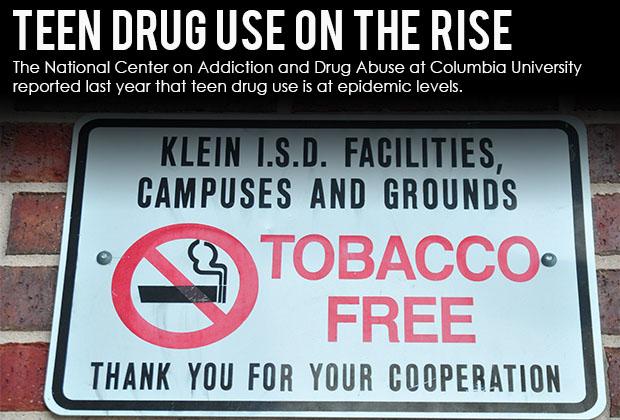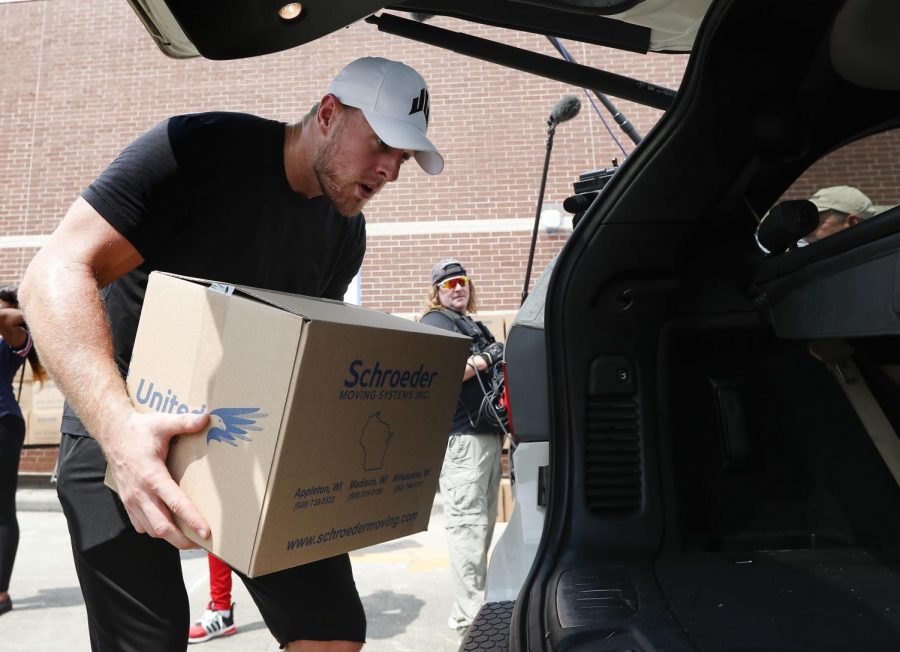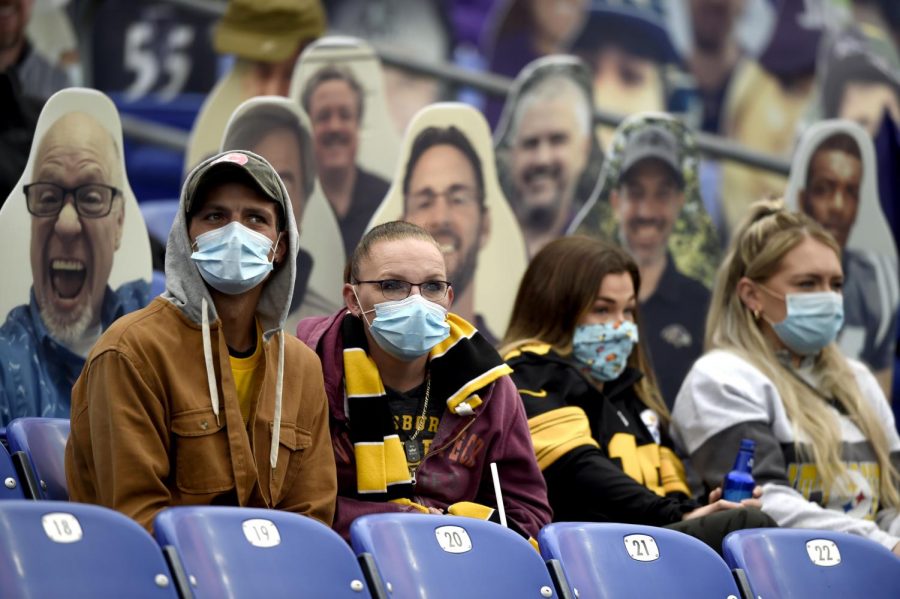A study by National Center on Addiction and Drug Abuse at Columbia University found that 17 percent of high school students are smoking or using drugs during the school day, with 86 percent indicating that they knew of fellow classmates who were using illegal substances throughout the instructional day.
“Everyone knows that drugs are highly available to teens, and teens don’t know any better, they’re concerned with the present time and nothing else matters,” senior Joseph Justinger said. “What they don’t think about is that what they do now affects how they feel and what they are able to do later.”
Former U.S. Secretary of Health, Education, and Welfare Joseph A. Califano, Jr. stated earlier in the year that high school is a dangerous place to send children since peer pressure played a significant role in pushing teens to use illegal substances. One part of a survey administered to high school students shocked surveyors. In the survey, 75 percent of respondents said that seeing pictures on social networking sites of their peers partying encourages them to imitate those actions.
“I think that media influences teens’ actions hugely, if it’s not the biggest reason teens do drugs it has to come in as a close second because there’s so much music that glamorizes and promotes drugs purposefully,” senior Sydney Lowe said. “It’s crazy how I can’t even tell who uses drugs and who doesn’t anymore. There are some of sweetest, quietest girls walking around here with their nose in a book and then I’ll see a picture of them partying like crazy and I can’t believe it.”
Since teens’ minds and bodies are still developing, drug use by a teen is extremely detrimental to their health. Some side effects include slower development of the brain and body, loss of short-term memory and ability to learn, underdeveloped motor skills, lack of motivation, and impaired emotional development that can lead to depression and eating disorders.
“It’s ironic that drug use is everywhere, but somehow it’s such a hush-hush topic, probably because it’s so taboo, yet it’s so normal,” junior Sean Murphy said. “The only way to raise awareness is to bring it up. Parents don’t know how to approach their kids because they almost don’t want them to know anything about drugs and kids don’t want to be approached by their parents, so no one talks to anyone and we all grow up ignorant.”
According to the National Parents Resource Institute for Drug Education, teens whose parents are open with them about drugs are nearly 37 percent less likely to use harmful substances. HOSA adviser Jean Mooney believes that the annual “Wise-Up” presentation at the school is not enough to ensure teens know what they should about drugs.
“Unless they’ve had a personal interaction with someone who’s had an incident with drugs and either died or was seriously injured, they don’t take it too seriously,” she said. “Students need somebody who has suffered from drug use to come in and be in their faces, talking to them.”
Assistant Principal Herman Lartigue believes that the “Wise Up” presentation should be shown to students more frequently because of it is very informative, but thinks the school has a better way of controlling the use of drugs by students.
“I think the best thing that we have is the deterrent of the drug dogs,” he said. “The drug dog comes in about four times a month and sweeps the school, as well as checks cars and lockers. The students are instilled with the fear of getting caught with something bad, which we hope will help them realize that drugs in general are just plain wrong. And we hope that helps them in life.”














